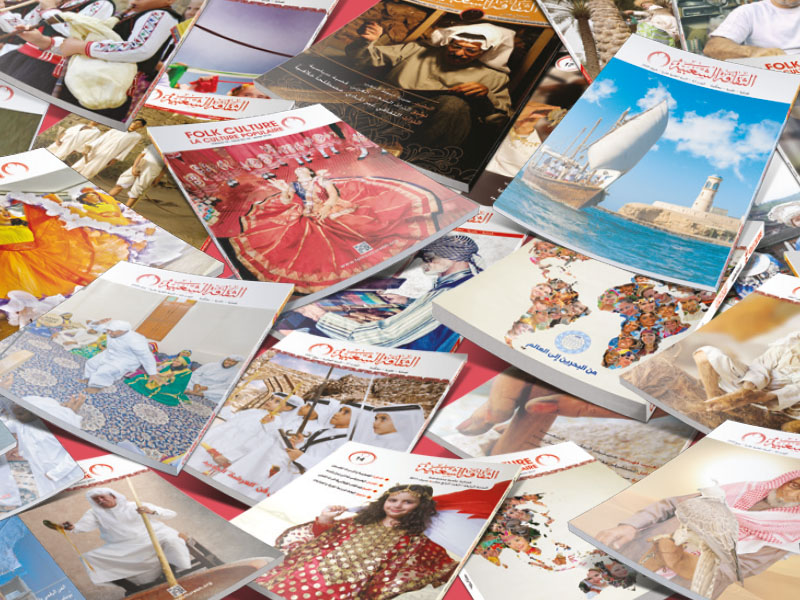A Word from the Editor Celebrating the Fiftieth Issue… Marching Through the Same Pat
Issue 50

As the world struggles with the pandemic and its widespread impact, the Kingdom of Bahrain and its people have emerged as one of the global leaders in terms of dealing with this contagious virus. The Kingdom has taken a number of pro-active precautions and provided multiple forms of support to protect our dear country from the consequences of this pandemic. The efforts of the workers on the front line of resistance is an example of great sacrifice.
Amid social distancing and virtual meetings, we ask our readers to allow us to highlight an achievement; the Journal of Folk Culture is now in its thirteenth year. We were preparing to celebrate this fiftieth issue in a grand celebration in the Arab world, one fit to honour the efforts continuously put forth by our employees, correspondents, distributors, writers, the people who helped to launch this journal, and everyone who shared their advice and opinions along the way.
The Journal of Folk Culture, in a way, continues the work we started with the Folk Heritage Journal at the Arab Gulf States Folklore Centre in the mid-1980s, to serve the noble pursuit of documenting and preserving heritage in a scientific manner. Therefore, issuing a scientific journal that is consistent and does not cater for the rush, fragmentation, and conflict this field unfortunately suffers from in the Arab world. Its main purpose being collecting, documenting, preserving, studying and analysing tangible and intangible heritage, far from the ostentatiousness.
The wise vision and reform project of His Majesty King Hamad bin Isa Al Khalifa of Bahrain, may God protect him, have supported our efforts.
In the course of our work at the Journal of Folk Culture, we have made friends around the world as a result of our scientific approach to arbitration and the support of the scientific committee at the International Organization of Folk Art (IOV), esteemed scholars and our team of creative designers. From the beginning, the Journal has adopted ways of working that have contributed to its success.
For example, one of our writers objected when our editing secretary told him of our official procedures. Our editor holds and runs his important position as a highly professional editor who also manages international public relations through his communication with authors and scholars from around the world, all in addition to being a distinguished writer and journalist himself. He adheres to the highest standards when dealing with arbitrators and writers, and plays a pivotal role in terms of editorial work. In spite of the writer’s objections, we have not changed our procedures.
In this issue, our IT Department reveals that by April 2020, the Journal's website had more than one million visitors from around the world, at the rate of one thousand visitor daily. While this is a significant achievement, we still have great ambitions. Moreover, the Arab media recently highlighted our success in receiving ARCIF accreditation and classifying material related to the humanities within category Q2.
In spite of the global trend toward online reading, the Journal of Folk Culture has maintained its distribution rates in most Arab countries, which means that the paper version is still popular. The readership of our printed journal counts as a success.
Under the patronage of His Majesty King Hamad bin Isa Al Khalifa, may God protect him, the Journal of Folk Culture will continue to be a success. May the Almighty protect Bahrain and our great king and good people from all evil.
Onwards and upwards on the path to progress.
Ali Abdullah Khalifa
Editor-in-Chief


































































